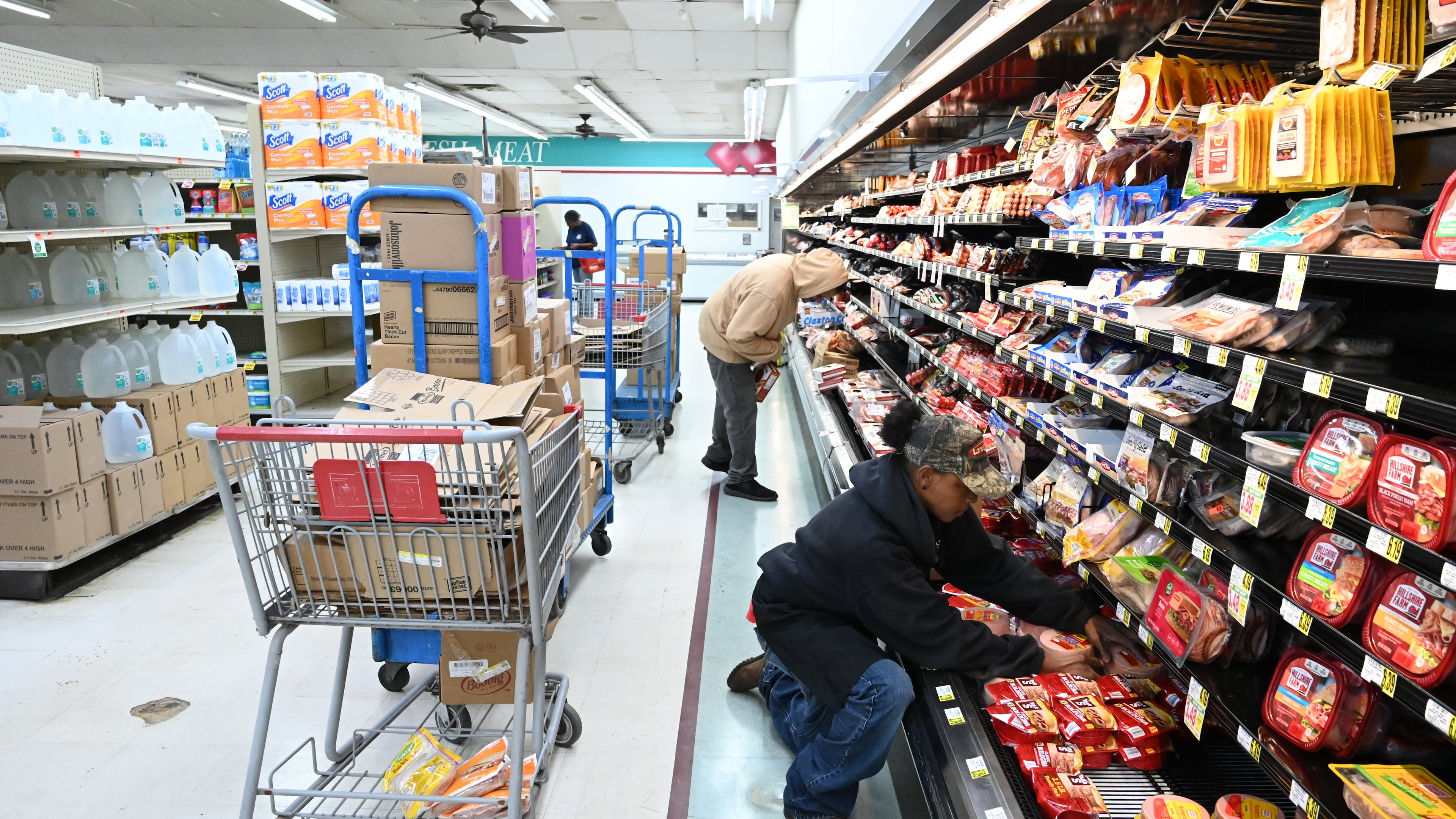Despite a $14.6 billion surplus, state leaders say they can’t bail out SNAP

As the federal shutdown drags on, the White House says funding for the nation’s largest food assistance program has dried up.
For roughly 1.3 million Georgians who rely on the Supplemental Food Assistance Program, or SNAP, that means they will have to find another way to fill their pantries.
Gov. Brian Kemp says there is nothing the state can do to fill in the gap, but Democrats say there are options if Republicans are willing to come to the table.
During a news conference Monday morning, state Sen. Nikki Merritt, D-Grayson, said the governor could call a special session and task legislators with finding the money to keep SNAP, also known as food stamps, afloat.
“We’re all here; we’re working,” she said. “So, hey, Gov. Kemp, call a special session. Let’s look at that budget. Let’s find the money.”
U.S. Reps. Hank Johnson, D-Lithonia, and Lucy McBath, D-Marietta, stood beside state Democrats, echoing the call. They previously signed into a letter alongside other Democrats in Georgia’s delegation asking state leaders to use their substantial rainy day fund— $14.6 billion — to cover SNAP.
“We’ve been imploring them, since there’s no longer funding for these programs, please utilize the surplus that we have,” McBath said.
Other Republican governors have said they are working on state-based solutions to fill the SNAP gap.
In Louisiana, Gov. Jeff Landry signed an emergency declaration to help fund November benefits for the elderly, disabled, and children. Virginia Gov. Glenn Youngkin said he declared a state of emergency to help to provide emergency hunger relief to SNAP recipients.
But details are limited on how these states will provide benefits, and there could be barriers to how much they can do. A memo from the U.S. Department of Agriculture said that states will not be reimbursed if they temporarily pick up the cost.
A spokesperson for Gov. Brian Kemp did not directly address whether declaring a state of emergency would grant Georgia the ability to allocate funds to SNAP recipients but said that there is “no mechanism by which the state can put money on EBT cards.”
Kemp put the onus on the Democrats.
“As the impacts of the Schumer shutdown are becoming clearer for Georgians, Democrats like Senators Ossoff and Warnock still refuse to do their jobs and open the government,” Kemp said Friday in a post on X.
Ife Finch Floyd, a senior economic policy analyst at the left-leaning Georgia Budget and Policy Institute, said even if Kemp found the bipartisan support needed to call a special session to address SNAP, any plans would likely face procedural hurdles.
“If there’s no guarantee that those resources are going to be in reimbursed, it just may put a little bit more constraint on what they feel like they can really do,” she said. “We know that Georgia has a surplus in resources, but not all states do.”
Floyd said the easier path is a solution at the federal level. She believes the Trump administration has the authority to move money around to pay for SNAP, similar to how the White House found dollars to keep the Women, Infants and Children nutrition program funded during the shutdown.
She also said that Congress could pass legislation to fund SNAP while agencies are shuttered, or ideally, approve a comprehensive funding package to end the shutdown.
“We want to make sure that we are not ignoring the other pathways at the federal side to make sure that SNAP benefits are funded for every American,” Floyd said. “Because 42 million Americans are at risk of not having food assistance and struggling to afford the cost of food in November if we don’t have a congressional solution.”





